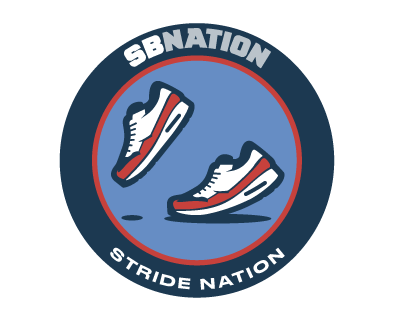While training, many of us have a tendency to think about just about everything. We focus on what we eat, how much sleep we're getting, how much we're running, when we're running. These are all normal things to think about and are all essential elements to consider when designing a training plan. Some of us tend to think about even more things--some call it overthinking--that may or may not be important to effective training. One of those things is the very nature of a week.
Even a cursory examination of the subject leads to the obvious conclusion that a seven-day interval for scheduling workouts, long runs, and recovery is entirely arbitrary. It might work for the ordering our society around a common calendar, but there's nothing physiologically essential to the seven-day training week. While some experiment with a 10-day cycle, most of us are left to the tools at hand--store-bought calendars and online running logs--to plan and monitor our training. These trap us in the seven-day model, but leave some room for debate on what set of days constitutes a full week. Namely, the question becomes: Does the week begin on Sunday or on a Monday?
The Case for Monday
Most training logs, both physical and digital, situate the start of a training week on a Monday. This works well with they way most of us live our lives: Our work begins on a Monday, so we mentally start out then. In terms of consolidating our feelings of new beginnings, this works well. No matter what happened last week or how much we let the weekend distract us from our goals, the beginning of a new work week provides an opportunity to remind our routines and start anew.
Additionally, we have two consecutive days off from other obligations at the end of the week (Saturday and Sunday) when we get in our long runs. This model avoids the potential for a two-long-run week allowed by the Sunday through Saturday calendar. Further, most road races from your local 5k to a major marathon take place on Sundays. Because a race is in many ways a culmination of training, it feels more fitting to end the week with a race rather than begin the week with a race.
The Case for Sunday
On your traditional United States calendar, you'll notice that a week begins on a Sunday. To be honest, I've only known a handful of runners who log their training under this paradigm and, despite my attempts to explain the problems allowed by the possibility of a two-long-run week--in which you do a long run on a Sunday and then follow it with a Saturday--or alternatively, a no-long-run week--you went long the previous Saturday and don't go long until the following Sunday--they've remained steadfast in their adherence to this paradigm.
The arguments for this approach typically resort to something along the lines of "that's what the calendar says a week is," or "have you ever seen a calendar?" These aren't great arguments on their own, but when we're dealing with something as arbitrary as the end points of an arbitrarily defined training period, they gain more credibility. Perhaps a more compelling case arises if you have religious preferences that dictate Sundays as a day of rest, in which case it seems better to start the week with rest.
This is all, of course, a silly argument to have. Your bodies don't care about when you start and end your week, and they're probably not particularly attached to the paradigm of a seven-day week either. As long as you're getting in regular workouts and long runs while mixing in adequate recovery, the details of how you structure or record it are largely inconsequential and come down to personal preference.
But, those personal preferences can turn out to be very personal, and, as such, we often feel very strongly about them. We'd like to hear from you. Do you plan your training around a seven-day week? If so, when does the week start? If you're on a different structure altogether, we'd like to hear about that too.

Loading comments...